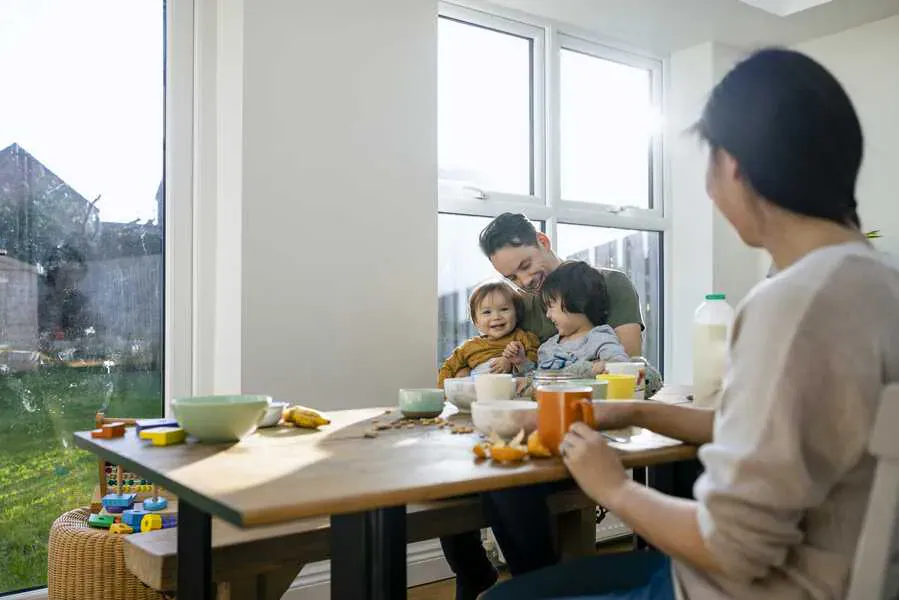How to be Kinder to Yourself as a Parent

PERMISSION FOR IMPERFECTION: BEING KINDER TO YOURSELF AS A PARENT
Parenting has its magic moments - but sometimes it can be difficult. Mistakes happen and things go wrong.
Most parents, at some time or another, experience a lack of confidence in their parenting. In fact, research has shown that 71% of parents would like to feel more confident in their parenting skills.
It’s also common to feel critical of your own parenting. And even though you have knowledge and skills to build on? It can feel like other people are “doing parenting” right, while you’re feeling frustrated with your children or internally feeling like you’re failing.
Being kind to yourself, especially when mistakes and setbacks happen, can help you to be a more calm, positive parent or carer.
It’s also a great skill to model to children, to show them how to develop self-confidence, self-acceptance and manage emotions. These skills can be helpful throughout life.
QUIETENING YOUR INNER CRITIC
Sometimes, negative or unhelpful thoughts are normal, especially when parenting feels hard.
But if critical thoughts about yourself are becoming a habit, it might be helpful to pause, acknowledge those thoughts and reframe them into something more constructive. For example:
Instead of "Why can't I do this? I’m a hopeless parent. Nothing I do is right. Everyone else is better than me," you could try "It’s okay to make mistakes. I can’t get it right all the time. I'll keep trying."
Each day provides opportunities for parents to be more self-compassionate as you react and respond to mistakes, setbacks and other challenging situations. When you listen to your inner voice and notice your unhelpful thoughts, try to pause and say something positive to yourself.
Children are watching and learning from parents and carers all the time. If you’re calmer and kinder to yourself through all of life’s ups and downs, what cues are they picking up from you?
When you model self-compassion, it shows your child how to deal with disappointments and setbacks positively.
For example, if you voice self-compassionate thoughts aloud when things go wrong, you help your child to see that it's okay to make mistakes. In turn, they learn they can handle their emotions in similar ways.
It can be difficult to reframe negative thoughts when you’re in the thick of a conflict or crisis. And a little self-doubt and self-criticism is normal. But there's a fine line between constructive criticism and frequently thinking that nothing you do is good enough.
Remember: there’s no such thing as a perfect parent (or child!). You can build on your knowledge and skills to become more accepting and gentler with yourself, and your whole family - even in tough times.
A REALISTIC ROUTINE IS AN ACT OF KINDNESS TO YOURSELF
Lots of parents and carers can wake up feeling overwhelmed, which can then affect everyone's focus and mood. Add lack of sleep, lunchbox dilemmas, lost socks and a ticking clock, and it's no wonder your self-doubt can go up, and your self-compassion can go down.
So how can you start (and end) the day on a better note and feel better about how things went?
Having a family routine can boost your confidence because it gets everyone on the same page. If you are a morning-rusher, you can avoid the stress by getting things ready the night before and involving your children.
No one's perfect, and things will go wrong sometimes. But a simple morning routine can help you feel more productive and effective as a parent - yes, even if that sock is still missing!
THE SELF-CARE AND SELF-COMPASSION CONNECTION
Research suggests that as well as playing a role in parental mental health and wellbeing, self-compassion may positively influence the day-to-day interactions parents have with their children.
It’s common to think it must be something big before it makes a difference. But finding a small way to be kinder to yourself is a place to start. Although there can be any number of challenges, investing in taking care of yourself as a parent can pay off for both you and your children.
Tending to your body and mind can give you the inner reserve to handle setbacks positively and solve problems calmly. It helps your children cope with the ups and downs of life, too. It's not selfish to prioritise yourself - in fact, it's essential.

